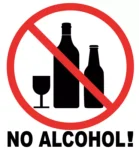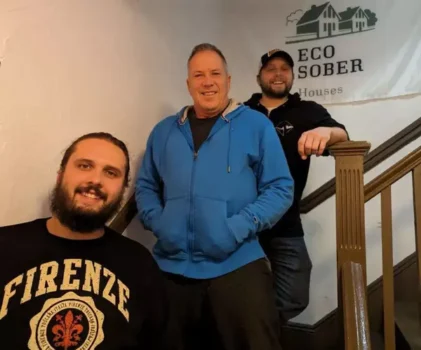
Watching a friend or family member struggle with a drinking problem can be as heartbreakingly painful as it is frustrating. Dealing with a loved one’s alcohol abuse or alcoholism can be painful and challenging for the whole family, but there is help available. The emotional impact of helping a loved one stay sober can take a toll. Seek help from a therapist or a counselor if you feel stressed or depressed. You can also participate in a program that’s designed for the friends and family members of alcoholics, such as Al-Anon.

How do you find a treatment program to offer at the intervention?
If you’re reluctant to turn to your loved ones because you’ve let them down before, consider going to couples counseling or family therapy. Most people with alcohol problems do not decide to make a big change out of the blue or transform their drinking habits overnight. Even after admitting you have a drinking problem, you may make excuses and drag your feet. It’s important to acknowledge your ambivalence about stopping drinking.

What is the outlook for alcoholism?

Here are seven tips to keep in mind as you support someone in their recovery journey. That said, If you’ve been drinking excessively, then stopping drinking cold turkey can lead to withdrawal symptoms. You may not need to completely reinvent your life to quit drinking, but making a few changes in your surroundings to help avoid alcohol triggers can make a big difference. Family and friends can provide encouragement and support when you stop drinking.
Handling setbacks in your recovery
Medications prescribed during detox are often tapered until the patient is no longer physically dependent on addictive substances. It’s important to have people you struggling with alcohol addiction can talk honestly and openly with about what you’re going through. Turn to trusted friends, a support group, people in your faith community, or your own therapist.
Personalized Medicine
You can find these lines listed on the internet or in the phone book. When supporting a partner or family member who is in active addiction to alcohol or other drugs, it’s critically important that you also take care of your well-being. Researchers at NIMH and around the country conduct many studies with patients and healthy volunteers. We have new and better treatment options today because of what clinical trials uncovered years ago.
- Research the kinds of treatment that are available and discuss these options with your friend or family member.
- Have the conversation in a place where you know you’ll have quiet and privacy.
- Ronan added that she’s seen « people I love change because of addiction. »
- Evaluate the coverage in your health insurance plan to determine how much of the costs your insurance will cover and how much you will have to pay.
- But saying things like, “If you loved me, you’d quit,” is damaging behavior that almost never works.
- But maybe you’re unsure about quitting completely and don’t want to hold yourself to that goal.
Consider your approach
Alcohol addiction may involve several different treatment methods. It’s important that each person get involved in a recovery program that will support long-term sobriety. This could mean https://ecosoberhouse.com/ an emphasis on therapy for someone who is depressed, or inpatient treatment for someone with severe withdrawal symptoms. SMART™ is a popular alternative to 12-step support groups.
Figure out how much you actually drink

Each drinking relapse is an opportunity to learn and recommit to sobriety, so you’ll be less likely to relapse in the future. Build a sober social network – If your previous social life revolved around alcohol, you may need to make some new connections. It’s important to have sober friends who will support your recovery. Try taking a class, joining a church or a civic group, volunteering, or attending events in your community. The symptoms listed above may be a sign of a severe form of alcohol withdrawal called delirium tremens, or DTs.
